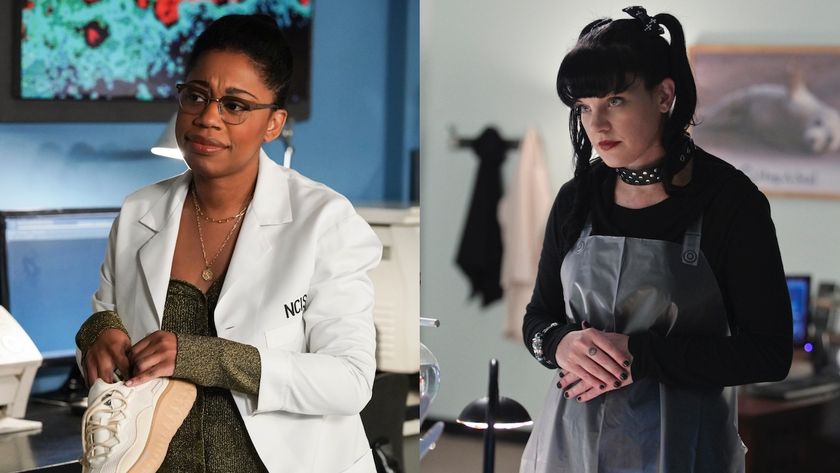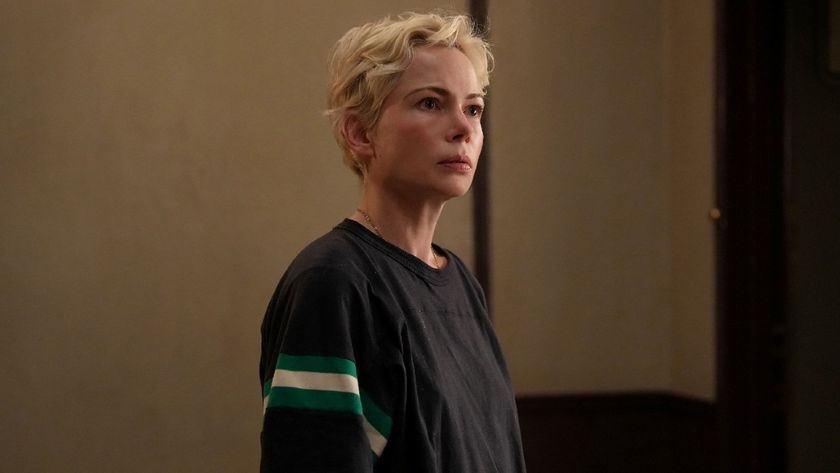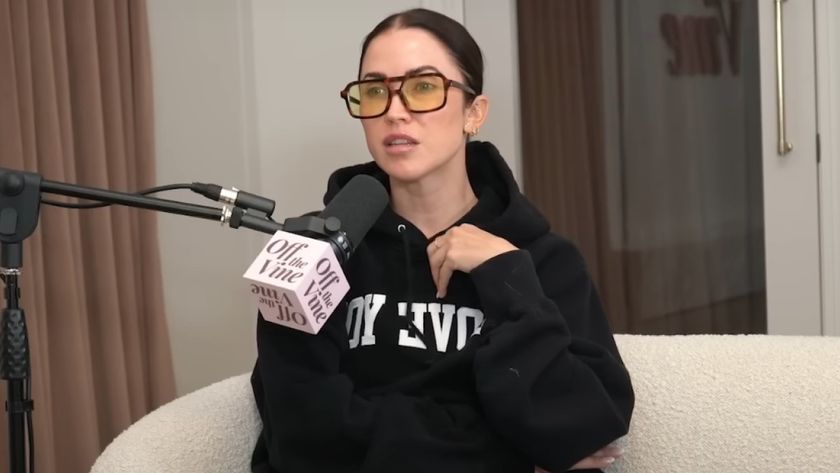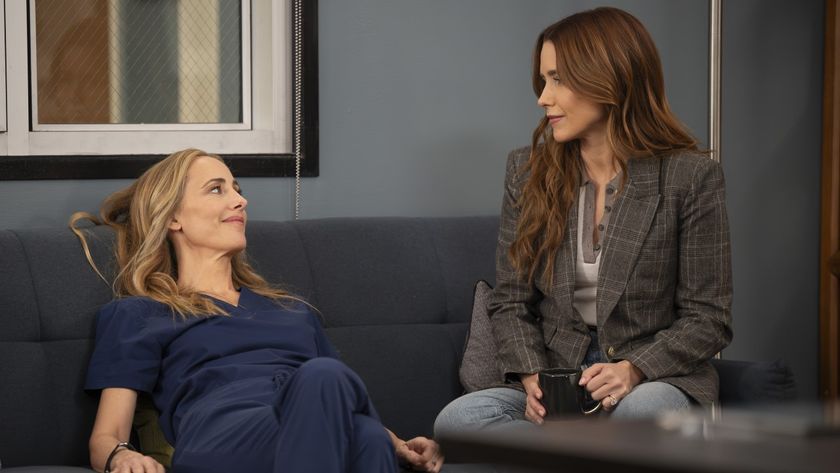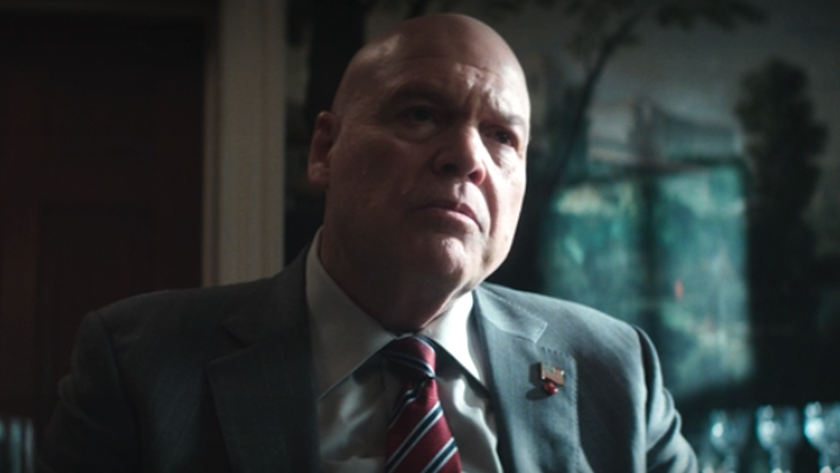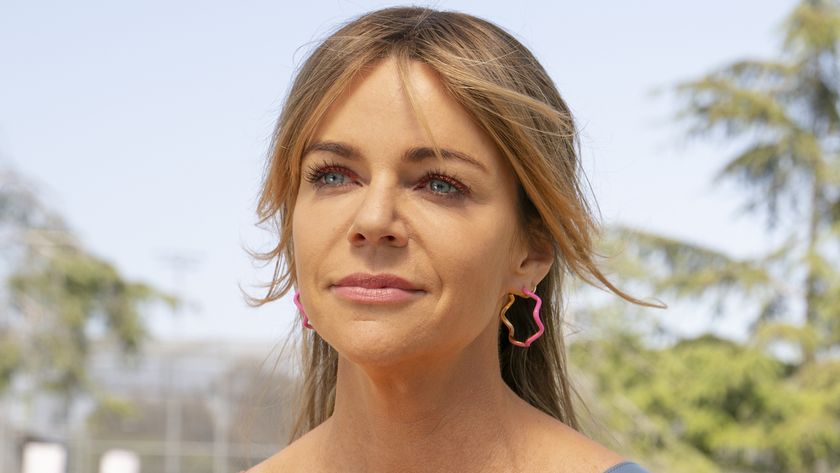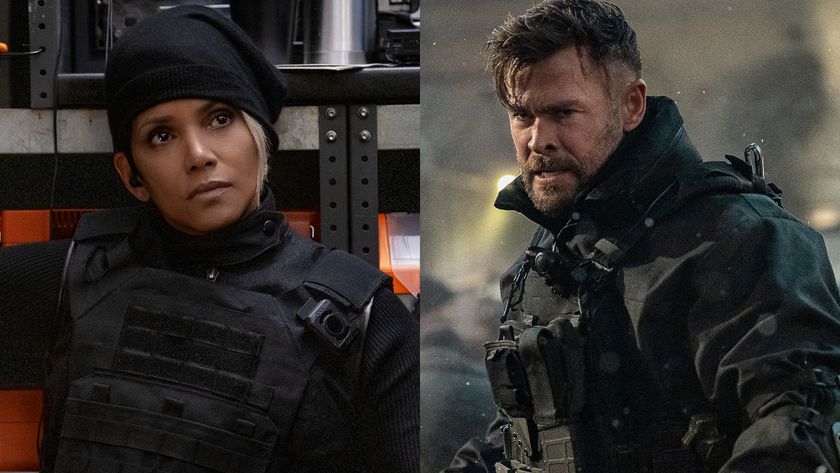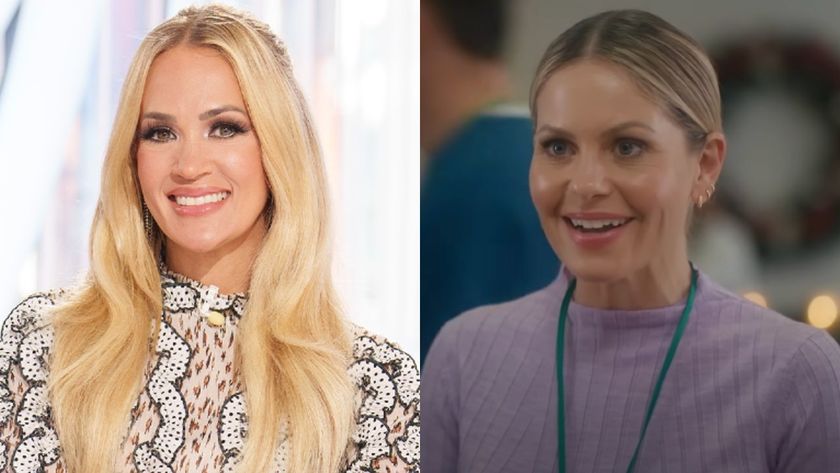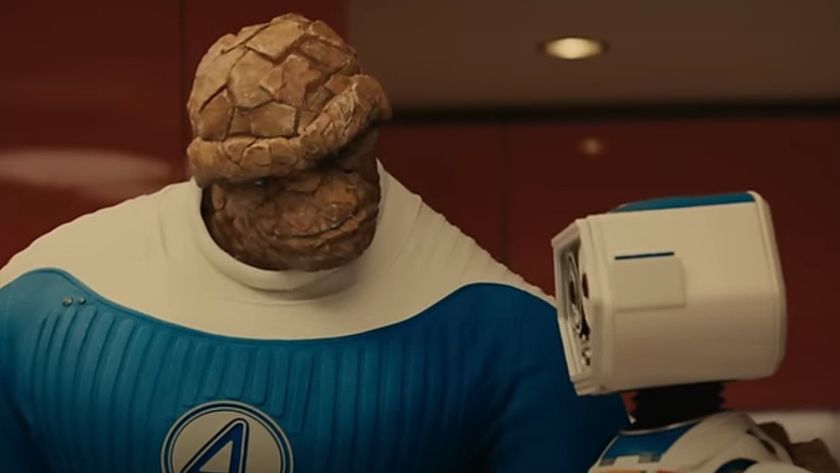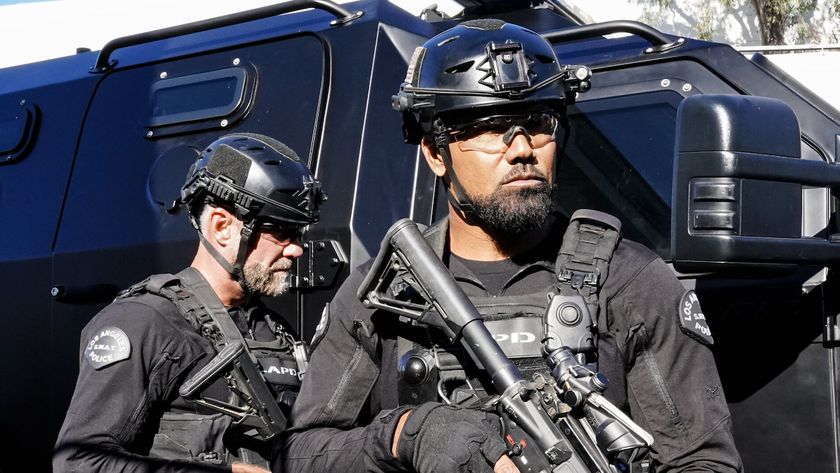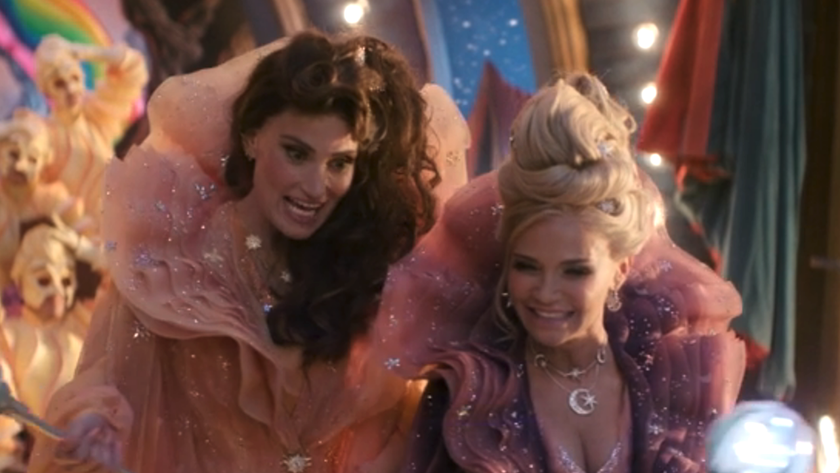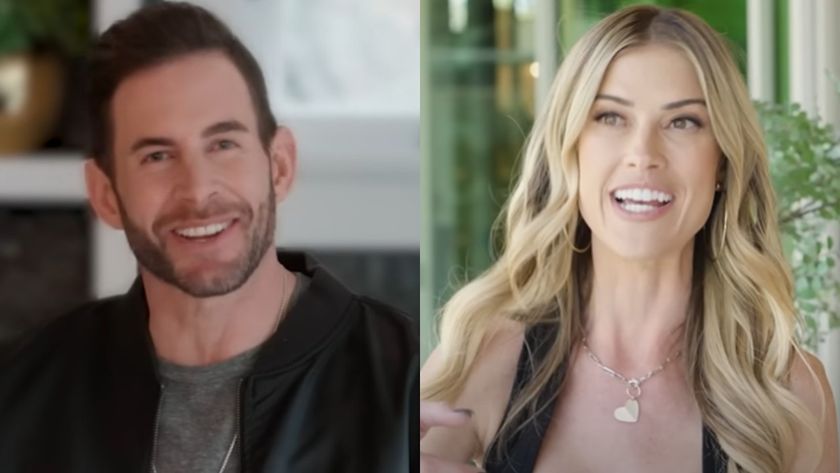Interview: Gemma Arterton Takes On Paparazzi Culture In Tamara Drewe
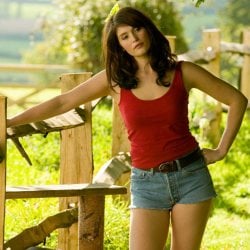
There are two Gemma Artertons working in movies today, each with a completely separate fanbase. If you're a fan of loud, somewhat empty action movies you've seen Arterton in Clash of the Titans, Quantum of Solace or Prince of Persia, and like her for being a beautiful if somewhat mute sidekick to the male hero of the piece. If you're a fan of other kinds of movies, like the dark kidnapping drama The Disappearance of Alice Creed or the newly released Stephen Frears comedy Tamara Drewe, you may have met the Gemma Arterton who takes chances, who is consciously trying to get away from the giant blockbusters that made her famous and prove that she's far more than a pretty face amidst the explosions.
The fact that Arterton is so frank about the fact that those blockbusters-- none of them well-received critically-- weren't rewarding to her, and the fact that she's making these weird little movies at all, makes her one of the most interesting actresses working today who everyone wants to brush off. In Tamara Drewe, based on Posy Simmonds' graphic novel that itself was inspired by Thomas Hardy's Far From The Madding Crowd, Arterton plays the titular character, a London-based columnist who causes a huge stir when she moves back out to the country home where she grew up. I talked to Arterton about the movie's own criticism of paparazzi culture and how it relates to her own fame, making a movie that no one necessarily expected to be a comedy, and why, much as she loves it, she really doesn't think Tamara Drewe is going to win an Oscar. The movie is out now in limited release.
The movie parodies celebrity in this interesting way, and there's so much crazy stuff out there written about you. You're kind of like the character in that way. It seems like the parody element would be familiar to you.
I think it's funny to highlight things like that, especially using actors who can parody themselves in a way. In the UK it's become this obsession more than anywhere. I find it's time that we start making movies about this weird culture that we now live in. People think they have access to people, or they idealize people that are absolutely destroyed inside but look great from the outside, and how hopeless that is. Ii don't have much experience on that front, but i definitely have a little insight. It's something that baffles me, and I've consciously detached myself as much as I can from it.
You had that year or two where you were all of a sudden everywhere ,in big movie after big movie, and you seem to be kind of consciously backing away from that.
Yeah, I never really thought that I'd work in film. It's such an intangible thing. I didn't expect to be in those types of movies, and I got very carried away with taking on jobs for the sake of it, and just doing it. I didn't really think about the repercussions or what I wanted out of a career. I just wanted to act. I've learned a lot in that time, and I've really been able to reflect, about I don't want to get typecast, because that's utterly boring for me. i've always been interested in very raw performances, dark, not pretty, not perfect. I seem to be playing these girls that are just arm candy really. Even though the producers try to justify that they are this, that or the other, it isn't that. It is pretty much what it is. For me I think it's much more representative of me to do these more eclectic [roles]-- and it interests me. And also the experience is kind of more rewarding. It's more intimate, you get more out of it.
You don't really know how to feel about Tamara for a lot of the movie. Even at the end you don't know if she's the heroine.
CINEMABLEND NEWSLETTER
Your Daily Blend of Entertainment News
Yeah, she's kind of the anti-heroine in a way. Out of all the characters in this piece, she's the closest to the Far from the Madding Crowd character. She is completely that promiscuous, selfish, but utterly charming, and additive and intoxicating. I remember when I read it I said, I don't know if I could play her, because i can't work her out-- which is exactly why I needed to play her. Ultimately you like her because you can relate to her. A lot of women can relate to her in some degree. Everyone has had that time in their life where they're going, "What did I just do? How on earth did I do that, and how do I stop it?" And kind of delight in the thought of it afterwards. She's not perfect, and that's kind of refreshing.

When this premiered at Cannes, some people really loved it and some really hated it. Do you think people didn't expect the movie to be as funny as it is, being a Stephen Frears movie?
Honestly it really is strange, this film. It doesn't tick any specific boxes in terms of genre, and neither does Stephen. The film is a peculiar thing, and people don't know how to take it. When I saw the script I felt the same. "I like this, it made me laugh, but I don't know what it is, and how on earth are we going to achieve this?" It's a very understated film. I think if it were in anybody else's hands it would have gone terribly wrong, but Stephen got it right somehow. He doesn't put pressure on himself, and he doesn't expect himself to create a masterpiece every time.
That's a rare attitude.
Yeah. Someone said to me the other day, such bloody nonsense, they said "Oh, are you excited about this being considered for an Oscar?" and I said, "Have you seen the movie?" I'm not putting it down, because I love it, but it's not going to get an Oscar. None of us intended that. Why is it that everyone thinks that if you make a movie you want to get an Oscar. Sometimes you just make movies for the fun of it.
Staff Writer at CinemaBlend

